#grocery retail
Video
Food Donation Improvement Act of 2021
#tiktok#emerson act#Food Donation Improvement Act of 2021#HR 62 51#doom scroll break#good news#food donation#food waste#food supply chain#food#Good Samaritan Act#grocery retail#food retail
65 notes
·
View notes
Text
The Toxic reality of Retail - Toxic Managers
As I discussed in, “The Toxic reality of Retail - Perception = Reality” Retail is Toxic. In that post I listed a few topics that are responsible for the toxic culture of modern retail. This time I want to talk about Toxic manager and store leaders.
When I say Toxic Managers, I don’t mean incompetent or lazy. While they can be annoying they’re not inherently toxic. A Toxic Manager is abusive, manipulative, and condescending. They micromanage, only give negative feedback, have poor communicators, demand authority, and expect their employees to make them look good.
If you’ve worked in retail more than 5 years, you’ve probably had one or two of these managers. I want to make something clear, they are managers but they are not leaders. Real leaders don’t behave this way.
I experienced this with a manager at a natural foods store that I worked at, lets call him Chad. Chad came into the store with zero grocery store experience. He had jumped around from one company to the next as a store manager. When he was brought in for his interview, he seemed genuine. I connected with him during the interview because we both previously worked for the same company.
When he was finally hired by the regional manager, and was in training at the store, he seemed like a good fit. He had knowledge of the natural foods and supplements. He seemed to click with everyone on the crew. After his trainer left to go to another store, his personality completely switched. It wasn’t a slow process, it was instant. He displayed nearly all the bad aspects of a toxic manager.
He was completely unapproachable. If you came to him with anything, he made it into a big deal or would speak with a gruff, condescending voice. He was the Store Manager and projected a tone of superiority in everyway.
When Cashiers called for backup, he refused to go help out. He would often say that he’s not a cashier. He would literally be standing 20 feet from the registers and ignore the pages. At this company EVERYONE is expected to cashier. Even the Vice Presidents and other people from home office would jump on a register if they were in a store. If you were a Store or Assistant Manager, you didn’t stop doing tasks because of your title, you just assumed more responsibility.
When he was thinking about doing something in the store he would often follow up his suggestion with, “Don’t you agree!” This put those he was pitching the idea to on the spot to disagree with their supervisor. And given his unapproachable demeanor, most people would agree with him, even if it was a bad idea or went against company policy. If the store underperformed on an inspection, he would pass the blame onto the crew. Even if the section that failed was his responsibility, he would pass the blame.
Employees would come to me, the Assistant Manager, to complain about something he had done, his attitude, or some other complaint. I had a stack of Statement forms ready for anyone to fill out and send them up the chain. I asked the regional manager, HR, and even the Director of Store Operations to investigate his behavior. For over a year he was allowed to terrorize the store and nearly break the crew, causing them all to jump ship. He eventually was allowed to transfer to work at a store in another city. Had they actually investigated him, it wouldn’t have been hard to see that he is not a good fit.
The first day he was gone, the attitude of the store increased tremendously. Everyone’s energy increased, employees felt more confident in their roles, and a weight was lifted off of everyone’s shoulders. The store became more productive and we even saw a significant increase in sales. (This will happen when you treat your crew with respect and show gratitude.)
During his reign of terror I did my best to reassure the crew that I was doing everything in my power to direct their concerns to the right people. I worked with them side by side giving them authentic feedback, both positive and the occasional negative feedback. But I’m the type of leader that spins a negative into a learning experience. I don’t hold it over their head. I want people to grow and be more confident in their role. My job wasn’t to catch people doing things wrong, it was to support my crew.
If you’re a leader in retail, avoid the toxic traits at all costs. If you notice yourself doing any of these, step back and have the humility to admit it, and change it. Let your crew know that you’re working on it and would appreciate their feedback but acknowledge that it’s not their responsibility to do so. So don’t get upset if they choose to give you the feedback or ignore your request.
Footnote: I recently discovered that Chad is still working for the company. I really hope he used the move to change his approach to management.
#Toxic retail#retail#grocery#natural foods#leadership#store manager#toxic culture#retail workers#grocery retail#HR#human relations
2 notes
·
View notes
Text
Grocery Retail Economic Trends to Prepare for in 2023
The grocery retail industry is constantly evolving and adapting to changes in the market and consumer behavior. With the new year already here, it's important to understand the economic trends that will shape the industry in 2023. The purpose of this article is to provide a comprehensive overview of these trends and to offer insights on how to prepare for what's ahead. We will cover key trends in the industry, market, economy, sales, and consumer behavior to give you a comprehensive understanding of what to expect in the year ahead.
The current state of grocery retail
The grocery store industry is currently undergoing a period of transformation as retailers look for ways to adapt to changing consumer preferences and technologies. In recent years, we have seen the rise of online grocery shopping and the increasing popularity of meal kit delivery services. These shifts have had a significant impact on the way people purchase and consume food, and they have also driven innovation and growth within the industry.
Despite these changes, traditional brick-and-mortar grocery stores still play a crucial role in the food retail landscape, providing consumers with a variety of products and services. It's important for retailers to stay informed about the latest industry trends in order to stay ahead of the competition and meet the changing needs of their customers.
Key trends to look out for in 2023
As we look ahead in 2023, there are several key trends that will shape the grocery store industry. One of the biggest trends to watch out for is the continued growth of e-commerce and online grocery shopping. With more and more consumers turning to the internet for their grocery needs, retailers will need to find ways to effectively compete in this space. Another trend to look out for is the increasing emphasis on sustainability and environmentally-friendly practices.
Consumers are becoming more conscious of their impact on the environment, and they are looking for retailers that share their values. In addition, there is a growing trend towards healthy and convenient meal options, as consumers seek out options that fit their busy lifestyles. Retailers that are able to effectively respond to these trends will be well-positioned for success in 2023.
Impact of these trends on the industry and consumers
The trends shaping the grocery store industry in 2023 will have a significant impact on both the industry and consumers. For retailers, staying ahead of these trends will be critical in order to remain competitive and meet the changing needs of consumers. Retailers that embrace the growth of e-commerce and online grocery shopping will be better able to reach a wider customer base and build strong relationships with their customers.
By focusing on sustainability and environmentally friendly practices, retailers will be able to tap into a growing segment of consumers who are looking for products and services that align with their values. Meanwhile, the trend toward healthy and convenient meal options will present opportunities for retailers to offer new and innovative products that meet the needs of busy consumers. Ultimately, these trends will help shape the future of the grocery store industry and will play a key role in determining which retailers thrive in the years ahead.
0 notes
Text





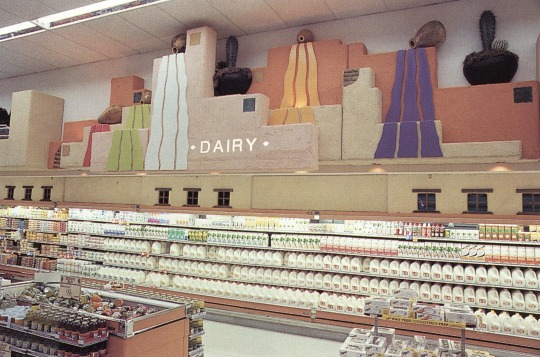
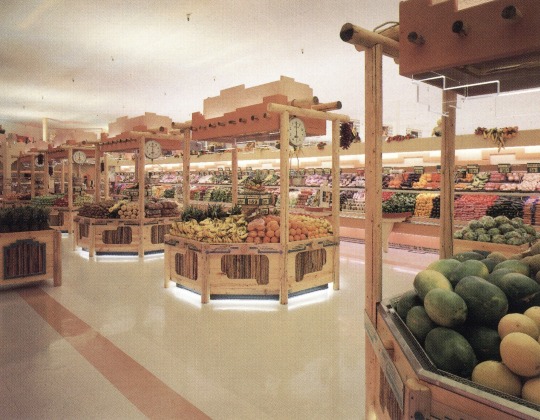
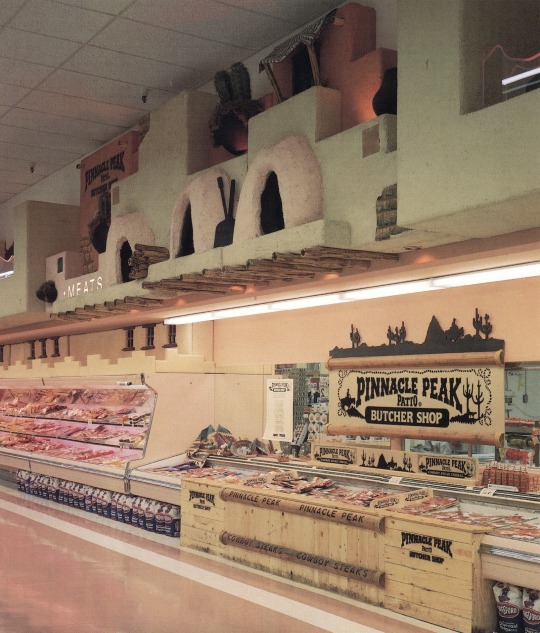
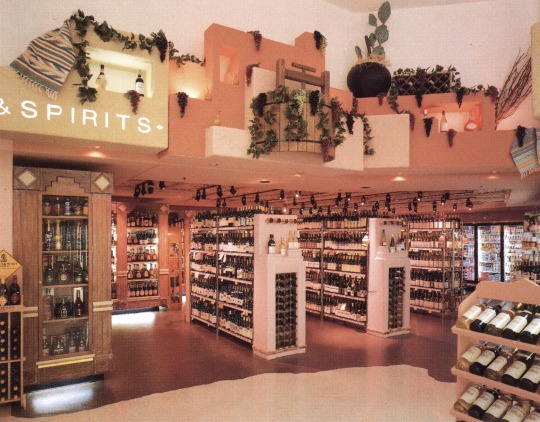
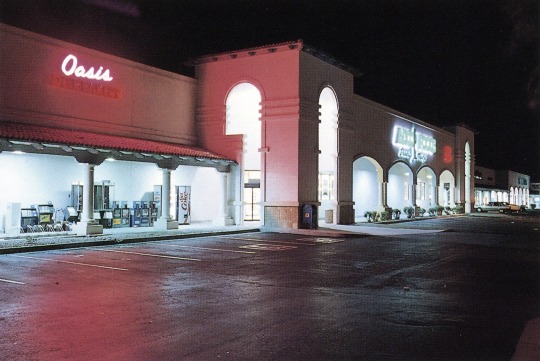
ABCO Desert Market - Phoenix, AZ (1990s)
Designed by Arizona Western Fixture & Display
Scanned from the book, 'Market, Supermarket, and Hypermarket Design 2' (1992)
#1990s#90s#grocery store#pastel#southwestern#southwest#interior design#phoenix#arizona#dusty#retail design#design
1K notes
·
View notes
Text
We ask your questions so you don’t have to! Submit your questions to have them posted anonymously as polls.
#polls#incognito polls#anonymous#tumblr polls#questions#employment#employees#grocery#retail#customer service#polls about jobs
135 notes
·
View notes
Text
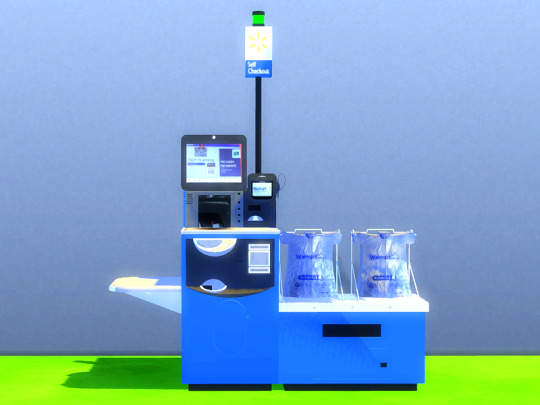
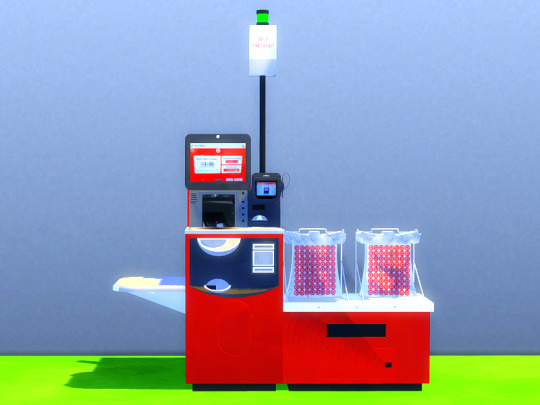
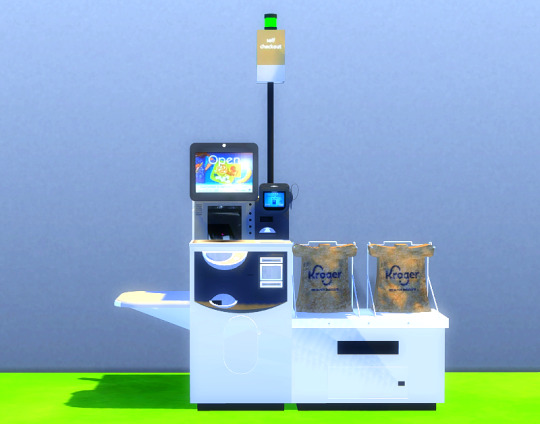

Self-Checkout CC
4 Swatches
Download: Patreon
#self checkout#grocery store#grocery#retail#kiosk#kroger#walmart#target#ts4cc#sims 4 simblr#ts4#sims 4 custom content#sims 4 cc#ts4 simblr#the sims 4#simblr#sims 4
788 notes
·
View notes
Text
Please please please be nice to your grocery store employees if you’re shopping for thanksgiving here in the states.
I don’t control the prices I think they are too high too.
I’m sorry if I don’t have something popular you are looking for I can’t make it appear.
We can’t do same day for most items like call ahead if you need something.
(I know this doesn’t really apply to like 99.999999% of people on here I don’t think but god I just needed to say it because the thanksgiving rush is not very nice this year.)
70 notes
·
View notes
Text

1959 A&P grocery store 100 years anniversary
#1959#a&p#grocery#store#retail#anniversary#cerealkiller#vintage food#food#vintage advertising#vintage magazine#kitchen#magazine#1950s#50s#50s ads
49 notes
·
View notes
Text

Go on.... take your serving ❤️ (人◕ω◕)
#meatcore#mystery flesh pit national park#meat#digital art#art#artists on tumblr#horror art#horror#indie horror game#retail#grocery#retail workers
63 notes
·
View notes
Text
yknow, one of the sad things retail has shown me is that the average middle aged/older person has no manners. when i say to customers at work "what can i do for you?" i get "i need" or "i want" or even straight up "give me". theres rarely any "may i" and god forbid they say please. its not hard to look a person in the eyes, say "can i please get ___" instead of barely acknowledging me and barking demands at me like i'm a robot. it's disrespectful. and it's really sad that the generations that taught us manners growing up seem to have forgotten theirs entirely.
#retail#retail woes#idk just a thought#shutupberri#like acually its sad#these people are grown adults#and they act like children#i love my job but sometimes it really gets to me#just how callous and entitled some of these people act#ngl it’s usually cig smokers too with the ‘give me a pack of this’ like fuck you#retail worker#retail workers#retail memes#customers#grocery
53 notes
·
View notes
Text
People who never worked in retail or grocery job have no right to say anything cause they don’t know what really goes on behind the scenes or the work politics and bullshit that goes on day to day. The things or people we have to deal with. You dont know what you dont know
6 notes
·
View notes
Text
The Toxic reality of Retail - Perception = Reality
Retail is toxic as hell right now. Maybe it always has been, but employees are more willing to talk about it. So what makes retail so toxic?
I could probably write a book about this if I tried. Perhaps I will one day. But for now I’ll keep to a few paragraphs. In the next few posts I may provide examples both from personal experience and from the experience of others. I will not be using real names of individuals in these examples, aside from my own.
Before I get into it, I want to share a little about my history in retail. I’ve been working in retail for over 25 years. 20 of those years were spent in Grocery retail. I also spent 9 years in leadership roles, including Assistant Manager and Store Manager. I Worked my way through the different areas and jobs in retail. I’ve done them all. I’ll get into this more in future posts. For now, lets clock in and talk about Toxic Retail.
What makes retail toxic? Moral relativism, Rationalized cruelty, High turnover, improper training, careless hiring practices, profits over people mentality, a lack of sympathy, managers with inflated egos, bullying, gaslighting, manipulation, microaggression, and more. Like I said, I could probably write a book with numerous examples for each of the actions listed above. For now, I’ll keep it to a short series of articles covering a select few.
Perception is Reality - This is a phrase that I have heard more and more over the years out of the mouth of Regional Managers, and HR Specialists. As humans we believe what we perceive to be accurate, and we create our own realities based on those perceptions. When Managers or HR practice this in their decision making, it’s basically there way of not having to look deeper into an issue and can cover their butt by using “Witness Statements”.
In a court of law a witness needs to be credible in order for a lawyer to consider putting them on the stand. According to Cornell, “ A credible witness is a witness who comes across as competent and worthy of belief. Their testimony is assumed to be more than likely true due to their experience, knowledge, training, and sense of honesty. The judge and jurors will use these factors to determine whether they believe the witness is credible. “
When companies use witness statements in their decision making, they don’t investigate the statement or the person making the statement. An employee could make a statement that another employee said something mean or inappropriate to them. A cashier could make a statement that their manager isn’t treating them as equally as other employees. A manager can claim that an employee isn’t meeting expectations according to company policy.
HR will usually take multiple statements during an investigation. If two or more statements match up even a little, they often use this to write up or terminate an employee or manager. While ignoring the statement of the individual being investigated. That means if two employees don’t like someone, they can simply report similar claims and potentially destroy another persons career.
HR can also use these statements to dismiss the actions of a bad manager. If several employees report similar issues with a manager, HR will usually chalk it up as disgruntled employees trying to get their manager in trouble. Basically HR managers are using their own perception to form their own reality of the situation.
This creates a culture in retail that you can’t trust anyone, creating the reality that you really can’t trust anyone. You never know who will turn against another even when a healthy working relationship exists.
We need to end the concept that perception is reality. It’s a lie we use to make decision making easy and justifiable. Companies simply use it to cover their own asses and not actually have to investigate issues. As leaders in retail we need to actually seek out evidence and take all sides into consideration. We need to dig deeper and stop rushing “investigations” in order to make our jobs easier.
Have you ever experience this aspect of Toxic Retail?
1 note
·
View note
Text
The current state of grocery inflation and how it's affecting retailers | Digital Grocer S5E5
Grocery inflation has been a persistent concern for retailers in the grocery marketplace for the past few years. grocery retail companies have been experimenting with different ways to mitigate the impact of grocery inflation on their business. Many grocery retail companies have focused on reducing costs in their supply chain, while others have passed along the cost of grocery inflation to consumers through price increases. grocery inflation has also had an impact on the types of products that grocery retailers offer for sale, as well as on the format of grocery stores. The impact of grocery inflation on retailers is likely to continue to be a significant challenge in the grocery marketplace.
Click on the below podcast link for more information:
In this episode of the Retail grocery podcast, Sylvain Perrier and Mark Fairhurst welcome John Lucot, retired President and Chief Operating Officer of Giant Eagle, as they discuss the effects of grocery inflation on retailers. Lucot shares his insights on what is happening behind the scenes in terms of merchandising and operations and how retailers are responding to the challenge of inflation. He also discusses how the pandemic has affected grocery delivery and pickup and how that is likely to continue in the future. This is a must-listen episode for anyone involved in the grocery industry or interested in learning more about how inflation is affecting retail. Lucot's experience in the grocery industry makes him uniquely qualified to discuss these topics, and his insights are sure to provide listeners with a better understanding of the current retail landscape.
The grocery eCommerce has been on the rise even before the pandemic hit. The pandemic acted as a grocery delivery and grocery pickup accelerator for many grocery retailers who were able to quickly pivot and meet the needs of their customers. Many grocery retailers saw an increase in sales and new customer acquisitions. Post-pandemic, grocery eCommerce is expected to continue to grow at a rapid pace. In Part 1: Grocery eCommerce: Post-pandemic insights and strategy, the hosts were joined by Zac Wilson, the Director of eCommerce at Raley’s Supermarkets, where they discussed what has occurred coming out of the Pandemic, how Rayley’s responded, the early impacts of inflation and how it is affecting eCommerce, and how that has affected grocery delivery and pickup. Some key takeaways from the conversation include the importance of building trust with customers, being agile and responsive to change, and having a diversified omnichannel strategy. For grocery retailers looking to stay ahead of the curve, this conversation is a must-listen.
0 notes
Text
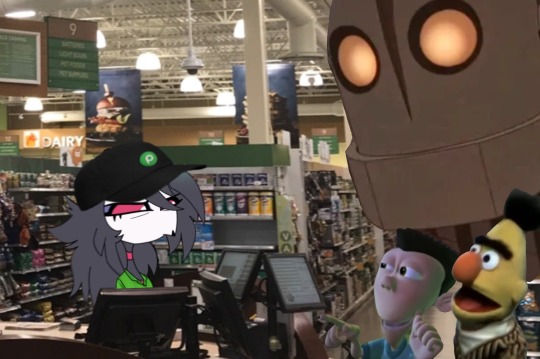
Neither snow, nor rain, nor heat, nor gloom of night, stays The Squad from finding out their squadmate got the job.
#bert and ernie#ernie and bert#helluva boss#jimmy neutron#my memes#octavia#octavia goetia#sheen estevez#iron giant#meme humor#publix#jobs#the squad#working#retail#grocery store#grocery shopping
29 notes
·
View notes
Text
reblog for reach
7 notes
·
View notes
Text

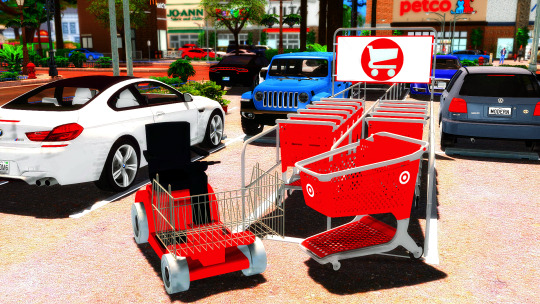
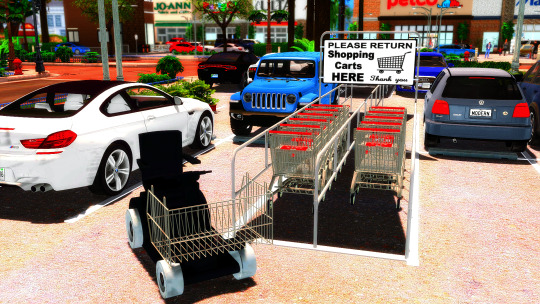
Shopping Cart CC Pack
Target Cart
Shopping Cart (4 Swatches)
Electric Cart (6 Swatches)
Shopping Cart Corral (3 Swatches)
Download: Patreon
#shopping carts#walmart#target#kroger#grocery store#retail#ts4cc#sims 4 simblr#ts4#sims 4 custom content#sims 4 cc#ts4 simblr#the sims 4#simblr#sims 4
559 notes
·
View notes